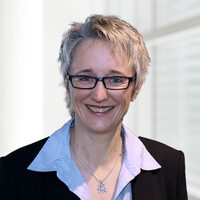The world is home to around 7.75 billion people — and the number is constantly increasing. At the same time, the world’s population is aging. This is pushing healthcare systems worldwide to their limits: costs are exploding, and too few doctors and nursing staff must care for too many people. Innovations are being used to address this trend. The goal is to treat patients more sustainably and efficiently.
Oerlikon covers solutions along the entire process chain in the highly regulated and complex medical technology market. At the same time, our individual health is also a very personal issue. With the new issue of our magazine BEYOND SURFACES, which is dedicated to medical technology, we consider both these aspects.
Coatings and additive manufacturing (AM) are becoming increasingly important in medical technology. Both Andy Christensen, AM pioneer in the medical sector, and our internal medical technology expert Canet Akcigoz are convinced of this. Lucas van der Merwe, CEO of Bächler Feintech, explains the role quality awareness plays in the coating of dental implants, while Nancy Shepard, Director of Business Development at Oerlikon AM Medical, explains in a very personal way how she became a patient herself.




































